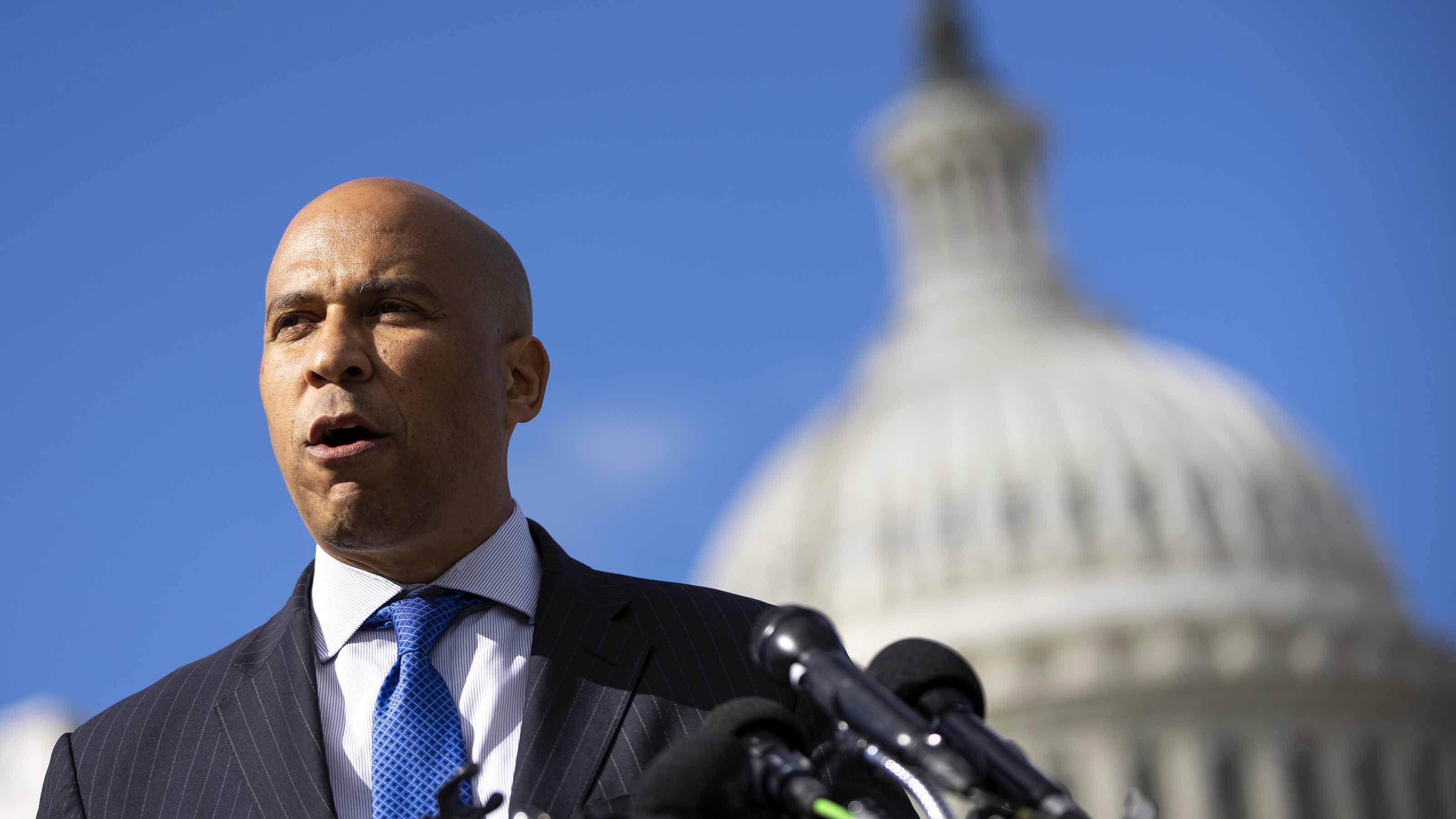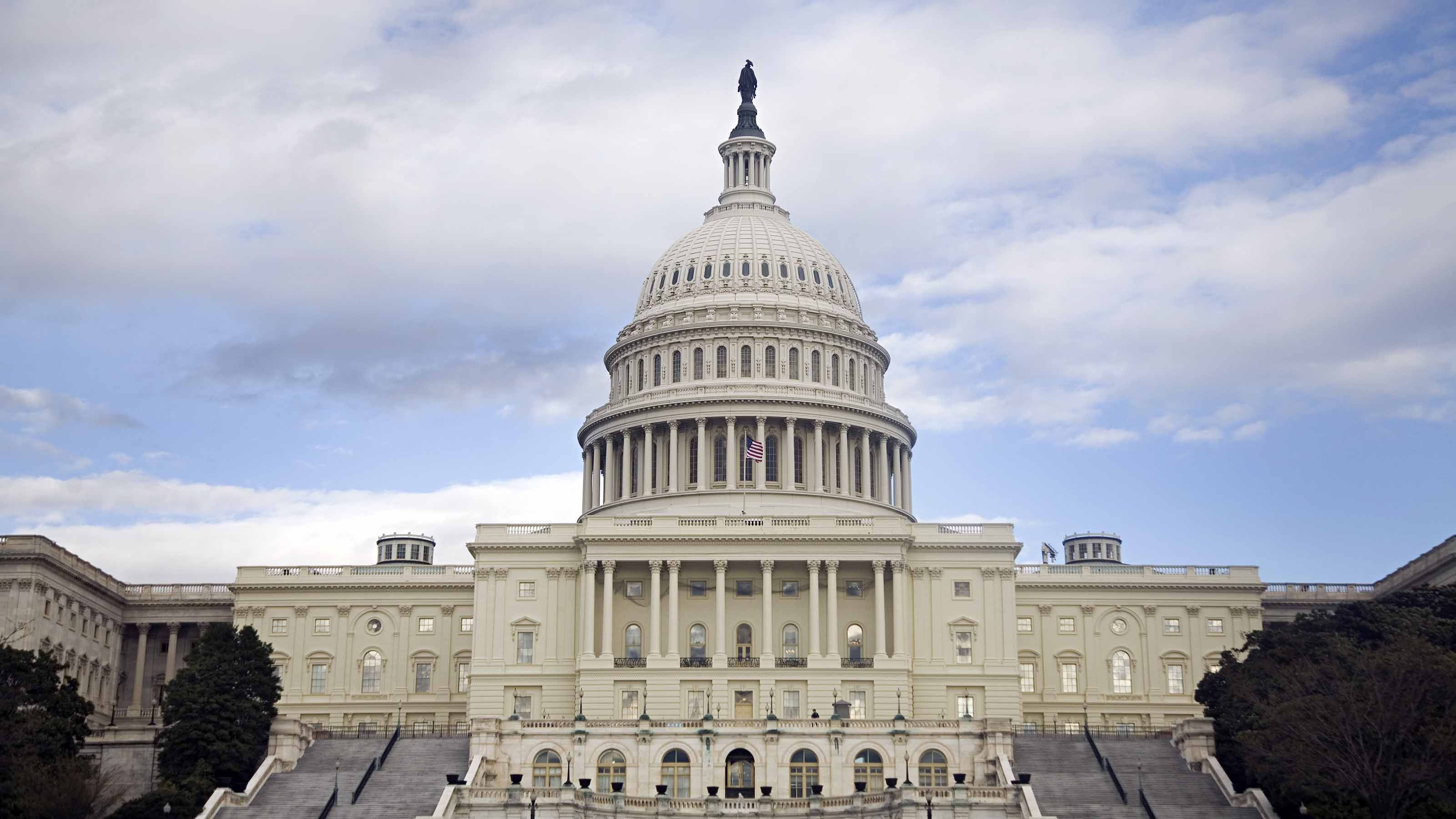This Week in Cannabis Investing: Booker Shows Support for SAFE Banking Act
Plus, cannabis stock volume peaks after Biden's announcement and marijuana ballot measures could impact industry growth.


Profit and prosper with the best of Kiplinger's advice on investing, taxes, retirement, personal finance and much more. Delivered daily. Enter your email in the box and click Sign Me Up.
You are now subscribed
Your newsletter sign-up was successful
Want to add more newsletters?

Delivered daily
Kiplinger Today
Profit and prosper with the best of Kiplinger's advice on investing, taxes, retirement, personal finance and much more delivered daily. Smart money moves start here.

Sent five days a week
Kiplinger A Step Ahead
Get practical help to make better financial decisions in your everyday life, from spending to savings on top deals.

Delivered daily
Kiplinger Closing Bell
Get today's biggest financial and investing headlines delivered to your inbox every day the U.S. stock market is open.

Sent twice a week
Kiplinger Adviser Intel
Financial pros across the country share best practices and fresh tactics to preserve and grow your wealth.

Delivered weekly
Kiplinger Tax Tips
Trim your federal and state tax bills with practical tax-planning and tax-cutting strategies.

Sent twice a week
Kiplinger Retirement Tips
Your twice-a-week guide to planning and enjoying a financially secure and richly rewarding retirement

Sent bimonthly.
Kiplinger Adviser Angle
Insights for advisers, wealth managers and other financial professionals.

Sent twice a week
Kiplinger Investing Weekly
Your twice-a-week roundup of promising stocks, funds, companies and industries you should consider, ones you should avoid, and why.

Sent weekly for six weeks
Kiplinger Invest for Retirement
Your step-by-step six-part series on how to invest for retirement, from devising a successful strategy to exactly which investments to choose.
A flurry of dialogue materialized from the House and Senate in response to President Joe Biden's executive action last week to pardon thousands of federal marijuana convictions. Senator Cory Booker (D-New Jersey) and Senate Majority Leader Chuck Schumer (D-New York) seem to be changing their tone on the SAFE Banking Act.
Previously, the two Democratic leaders have worked to delay SAFE Banking's progress in favor of adding additional social justice measures to the bill. However, Biden's marijuana announcements have alleviated some of those concerns, and we're pleased to see Booker responding positively.
"There are already conversations and dialogue going on about some kind of bipartisan movement because we see problems within the banking industry, and a lot of people who are winning licenses can't get access to loans and more," Senator Booker told NPR. "So there's a lot of folks who understand that we have to act on the federal level to do more than the president's done, and I'm hopeful that this Congress, actually in the lame-duck after the midterms, I'm very hopeful we can get something done."
From just $107.88 $24.99 for Kiplinger Personal Finance
Become a smarter, better informed investor. Subscribe from just $107.88 $24.99, plus get up to 4 Special Issues

Sign up for Kiplinger’s Free Newsletters
Profit and prosper with the best of expert advice on investing, taxes, retirement, personal finance and more - straight to your e-mail.
Profit and prosper with the best of expert advice - straight to your e-mail.
Medical marijuana is now legal in 38 states, and recreational cannabis use is legal in 19, as well as the District of Columbia. Five more states will vote on legalizing adult-use next month. And with more red states now voting in favor of loosening cannabis restrictions, all eyes are on the Senate's upcoming actions in the lame-duck session.
Cannabis Stock Trading Volumes Hits Record High
Not surprisingly, pot stocks surged last week after President Biden asked for a review of marijuana's drug classification. On the day of the announcement, we saw a significant final hour of trading given the very high trading volumes. Cannabis stocks and cannabis-focused exchange-traded funds (ETFs) reached record high volumes the day following Biden's news.
Among the investment community, discussions are taking place around hosting meetings and events to educate and inform more institutional investors about the implications of the president's actions.
Some marijuana stocks have begun to give back their gains, but the possibility of federal legalization and the elimination of the 280E tax rule could provide a foundation for U.S. cannabis stocks. Multi-state operator Curaleaf (CURLF), for example, remains up more than 10% from its Oct. 5 close.
During the post-announcement excitement, Cresco Labs (CRLBF) tweeted, "This is huge news – the biggest step under the Biden administration so far on federal cannabis reform." Shares for the Chicago-based operator rose 24.4% during last Thursday's surge.
Across the border, Canopy Growth (CGC) saw a 36% loss across Friday and Monday, erasing some of Thursday's gains. Canadian cannabis stocks saw a steeper fall possibly due to less compelling fundamentals, correlation with the weak state of the broader market, and current federal progress preventing operators from entering the U.S. for longer. We would not be surprised to see a stronger bid for all cannabis stocks through the elections as investors become increasingly optimistic about federal action during the Senate's lame-duck session.
Cannabis Ballot Measures to Impact Industry Growth
Five states are preparing for ballot measures during the upcoming midterm elections that could legalize recreational cannabis. Voters in Maryland, Arkansas, Missouri, North Dakota and South Dakota will have their say on Tuesday, Nov. 8. A considerable amount of coverage has been given to President Biden's announcement, which is no surprise given the historical significance, but the addition of more states to the legal cannabis marketplace is also important news for investors.
Before adding in any new states, annual U.S. legal cannabis sales are projected to grow at a compound annual growth rate of 11% and reach over $57 billion by 2030. According to work done here at Poseidon and using other industry data sources, we believe the addition of these five states to the marketplace could add another $3.8 billion to annual adult-use sales.
The addition of more states to the recreational market and the potential for adult-use legalization in almost 50% of U.S. states will also influence the view that the President's administration takes on federal cannabis legalization.
Profit and prosper with the best of Kiplinger's advice on investing, taxes, retirement, personal finance and much more. Delivered daily. Enter your email in the box and click Sign Me Up.

Morgan Paxhia is Managing Director and Co-Founder of Poseidon Investment Management. With over 10 years experience in investing and finance, Morgan has developed a deep understanding of individual company analysis, portfolio construction, and risk mitigation. This content is not intended to provide any investment, financial, legal, regulatory, accounting, tax or similar advice, and nothing should be construed as a recommendation by Poseidon Investment Management, LLC, its affiliates, or any third party, to acquire or dispose of any investment or security, or to engage in any investment strategy or transaction. An investment in any strategy involves a high degree of risk and there is always the possibility of loss, including the loss of principal. This content should not be considered as an offer or solicitation to purchase or sell securities or other services. Any of the securities identified and described herein are for illustrative purposes only. Their selection was based upon nonperformance-based objective criteria. The content presented is believed to be factual and up-to-date, but we do not guarantee its accuracy and it should not be regarded as a complete analysis of the subjects discussed. Past performance is not indicative of future results.
-
 5 Vince Lombardi Quotes Retirees Should Live By
5 Vince Lombardi Quotes Retirees Should Live ByThe iconic football coach's philosophy can help retirees win at the game of life.
-
 The $200,000 Olympic 'Pension' is a Retirement Game-Changer for Team USA
The $200,000 Olympic 'Pension' is a Retirement Game-Changer for Team USAThe donation by financier Ross Stevens is meant to be a "retirement program" for Team USA Olympic and Paralympic athletes.
-
 10 Cheapest Places to Live in Colorado
10 Cheapest Places to Live in ColoradoProperty Tax Looking for a cozy cabin near the slopes? These Colorado counties combine reasonable house prices with the state's lowest property tax bills.
-
 Future U.S. Economic Growth Hinges on Immigrants
Future U.S. Economic Growth Hinges on ImmigrantsThe Kiplinger Letter With the native birthrate slipping, employers are increasingly relying on foreign-born workers to staff up.
-
 10 Predictions for 2024 from The Kiplinger Letter
10 Predictions for 2024 from The Kiplinger LetterThe Kiplinger Letter As 2023 wraps up, here are 10 big predictions for the new year.
-
 Will Cannabis Be Impacted By Kevin McCarthy's Ouster?: This Week in Cannabis Investing
Will Cannabis Be Impacted By Kevin McCarthy's Ouster?: This Week in Cannabis InvestingA cannabis banking bill could feel the reverberations from the removal of McCarthy as speaker of the House.
-
 How A Government Shutdown Could Affect You
How A Government Shutdown Could Affect YouA government shutdown would put tens of thousands of federal workers on furlough and interrupt certain services.
-
 Green Thumb Industries is a Cannabis Cash Cow: This Week in Cannabis Investing
Green Thumb Industries is a Cannabis Cash Cow: This Week in Cannabis InvestingGreen Thumb Industries reported solid cash flow generation in the first quarter despite continued price compression.
-
 SAFE Banking Act Gets New Life: This Week in Cannabis Investing
SAFE Banking Act Gets New Life: This Week in Cannabis InvestingA bipartisan effort has given the SAFE Banking Act, which helps improve cannabis companies' access to finance, a shot to reach the Senate floor.
-
 Stock Market Today: Meta Earnings Spark Major Rally on Wall Street
Stock Market Today: Meta Earnings Spark Major Rally on Wall StreetThe Facebook parent's quarterly results overshadowed a worse-than-expected reading on Q1 gross domestic product.
-
 Missouri's Recreational Weed Market Faces Product Shortage: This Week in Cannabis Investing
Missouri's Recreational Weed Market Faces Product Shortage: This Week in Cannabis InvestingThe Show Me State's recreational weed market has been red hot, but now demand is exceeding supply.